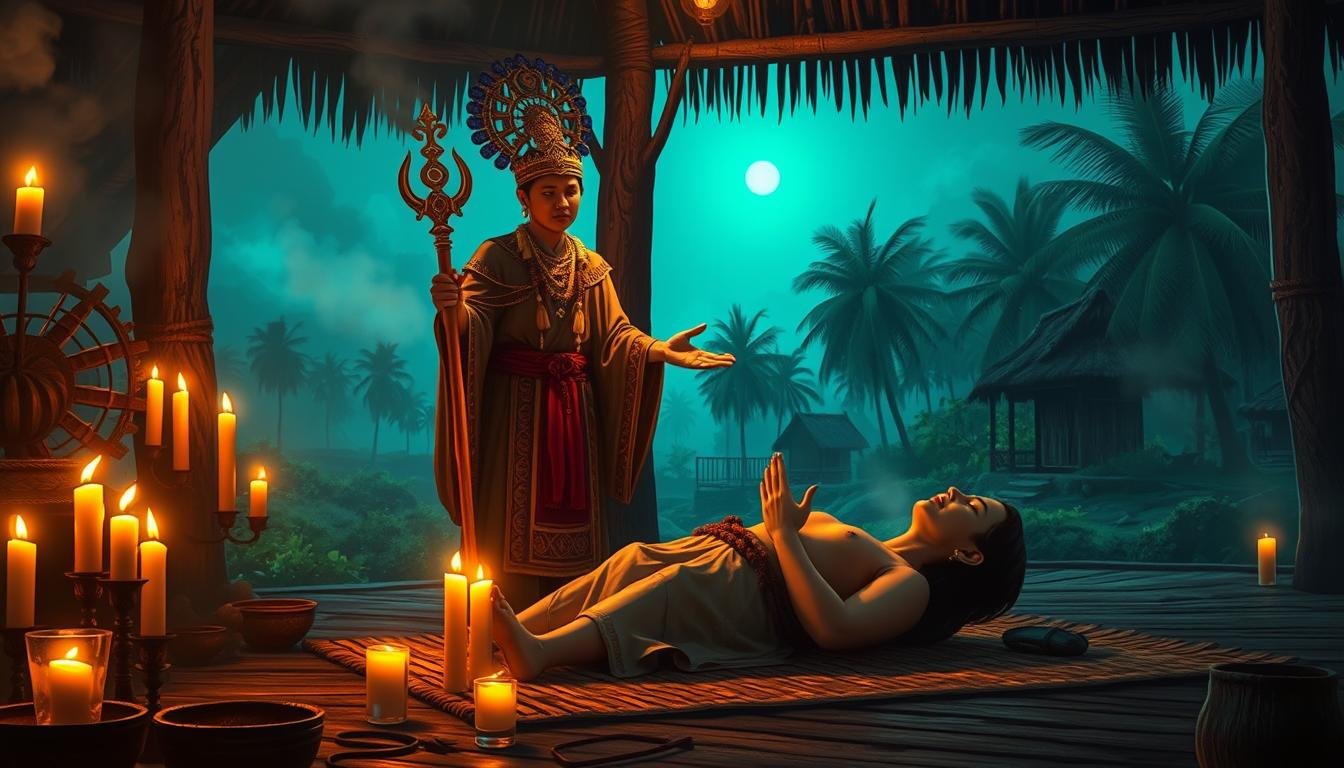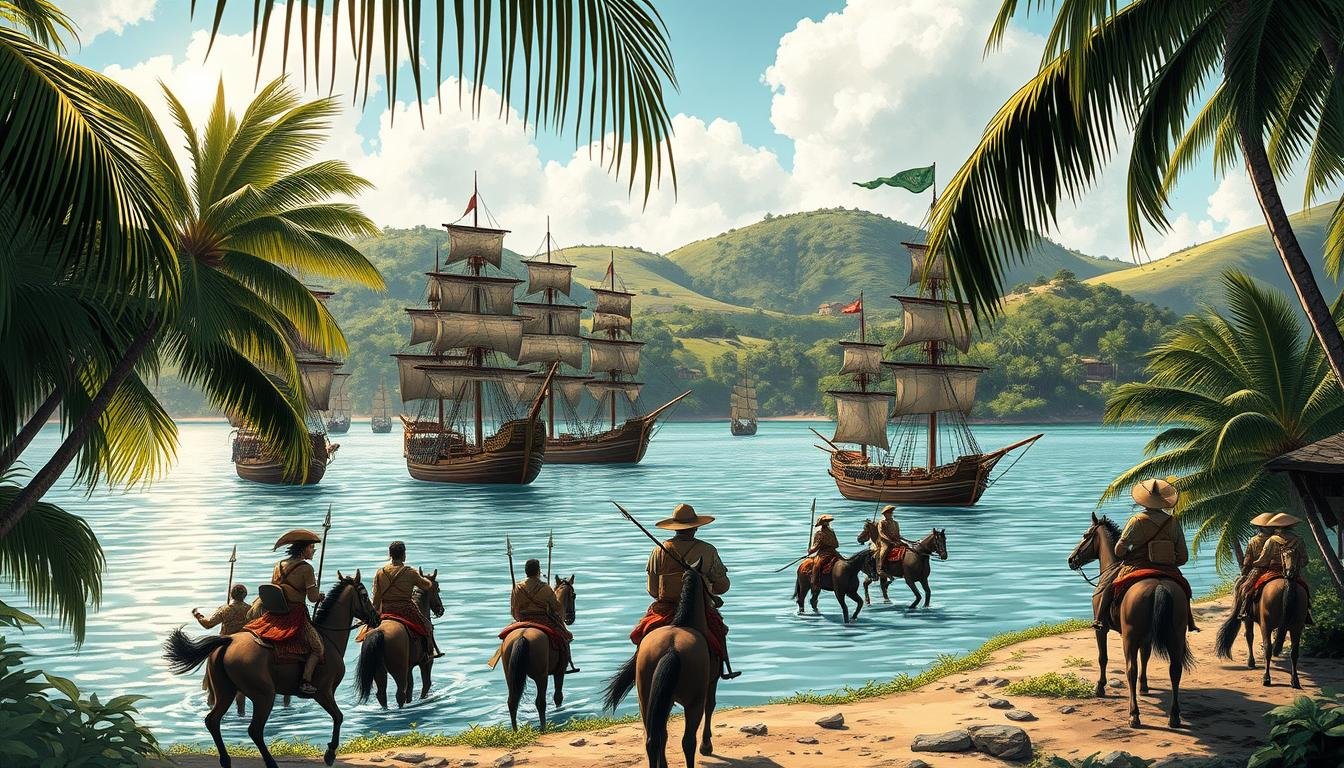Did you know that 60% of pre-colonial Filipinos relied on spiritual leaders for healing and guidance? These figures highlight the profound influence of the Babaylan, revered as healers and spiritual mediums in Filipino society. In pre-colonial times, these shamans bridged the natural and supernatural worlds. They performed rituals, used herbal remedies, and provided spiritual counseling….
Pre-Colonial (900–1560)
Unearthing Ancient Trade Routes: The Philippines and Its Neighbors
Did you know that during the height of the Manila Galleon trade, over 1,000 ships sailed annually between the Philippines and Mexico? This bustling network of commerce connected distant cultures and laid the foundation for modern economic systems. The Philippines, with its strategic location, became a hub for goods and services, shaping its identity as…
Pre-Colonial Philippine Burial Practices: Rituals and Beliefs
Did you know that in pre-colonial Philippines, some communities placed their dead in tree trunks and hung them in the forest canopy? This unique practice reflects the deep connection between the living and the deceased in ancient Filipino culture. Death was not seen as an end but as a transition. Communities honored the body with…
Ancient Filipino Weapons: Swords, Spears, and Shields
Did you know that ancient Filipino warriors crafted some of the most intricate and effective tools of combat in Southeast Asia? These weapons were not just tools for war but also symbols of honor, artistry, and cultural identity. From the sharp swords to the sturdy shields, each piece was designed with precision and purpose. The…
Ancient Filipino Boats: Unveiling the Maritime Prowess of Our Ancestors
Did you know that ancient Filipinos were among the most skilled maritime navigators in Southeast Asia? Their innovative watercraft designs allowed them to traverse vast oceans long before modern technology existed. These vessels were not just tools for travel but symbols of cultural identity and ingenuity. The maritime legacy of the Philippines is deeply rooted…
The Social Hierarchy of the Barangay: Datus, Timawa, and Alipin
Did you know that the barangay, the smallest administrative unit in the Philippines, has roots tracing back to pre-colonial times? Originally derived from the word “balangay,” a type of boat used by early Austronesian settlers, this system has evolved into a cornerstone of modern local governance. In its early days, the village was led by…
Beyond Sandugo: How Slave Raiding Shaped Bohol’s Alliance with Legazpi and the Spanish
The history of Bohol’s alliance with Miguel López de Legazpi and the Spanish Empire is a fascinating chapter in Philippine development. This partnership was not just a diplomatic agreement but a strategic move influenced by complex maritime and political dynamics. During this period, alliances were often forged through shared goals and mutual interests. The Spanish…
Pre-Colonial Filipino Style of Banishing Body Odor
Ever wander through a crowded market and catch a whiff of something… less than pleasant? Makes you wonder, how did people deal with body odor way back in the day, before fancy deodorants and perfumes flooded the shelves? Let’s dive into the fascinating world of pre-colonial and colonial Philippines and uncover their secrets to smelling…
Did Pre-Colonial Filipinos Use Messenger Pigeons? Unraveling Ancient Communication
Ever wondered how people in the Philippines communicated across islands before phones and the internet? We’re talking way back, before the Spanish even arrived. Did they ever use messenger pigeons like they did in other parts of the world? It’s a question that has puzzled many history buffs and bird enthusiasts alike. The Mystery of…
Could Bamboo Really Protect Pre-Colonial Warriors?
Okay, so you’re crafting a historical fantasy set in the Philippines around the 1300s. Cool! But you’ve hit a snag: armor. You’re wondering, “Could pre-colonial warriors REALLY rock bamboo armor?” Let’s dive in! The Boxer Codex, a fascinating source from the late 1500s, gives us glimpses into pre-colonial Filipino warriors, mentioning armor made from surprising…







